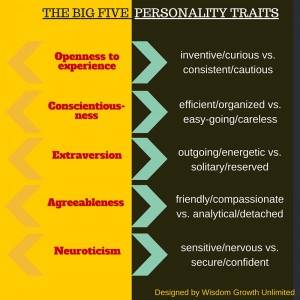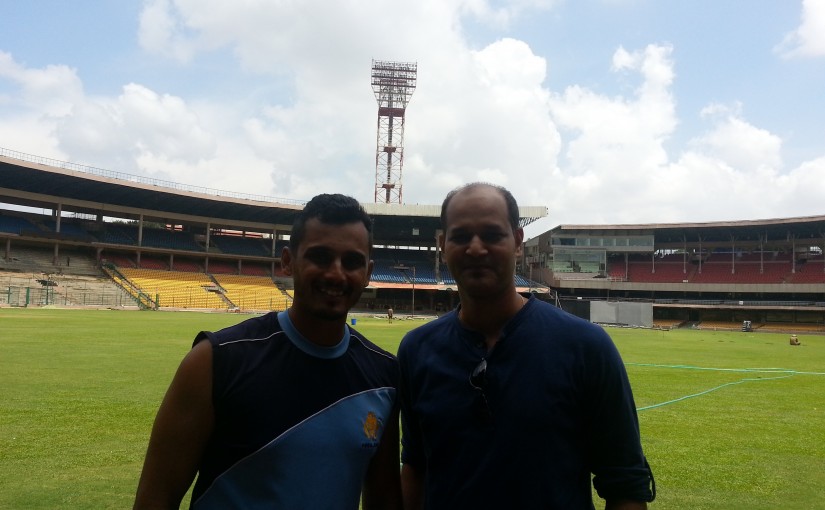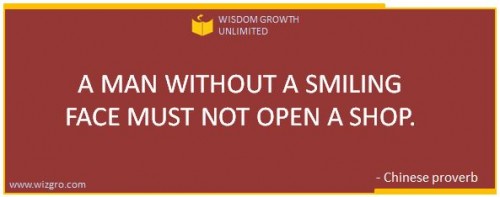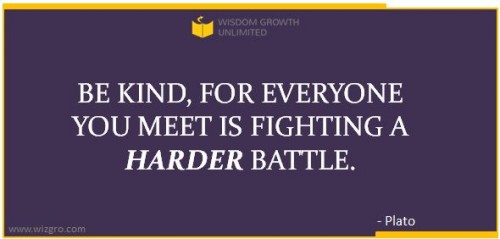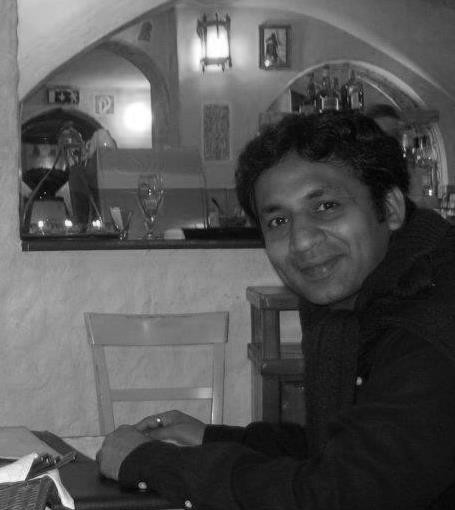13 mins read . by Sandeep Mahagaonkar . August 7, 2015

I caught up with Venkatesh DK last week to talk about various aspects of professional development. Venky – as he is popularly known, discussed topics of Heart-Brain synchronization and Empathy. He also touched up on the importance of skill development and strategies about making the right career decisions.
Venky has held various leadership positions in SAP Labs and Zensar – the last one heading the Global SAP Practice at Zensar Technologies.
Below is a lightly edited transcript of the conversation.
Sandeep (SM): You’ve held various leadership roles in SAP Labs (before moving over to Zensar). You started as a developer and transitioned towards product management and product strategy – how did this transformation happen and why?
Venkatesh DK (VD): I would be lying if I told you that all of these moves were planned and orchestrated. Firstly, I would like to recognize and thank SAP for the opportunities that were given to me to try several roles and make me the person I am today.
There were several reasons behind me taking up different roles – the important ones are, firstly, the Heart and Brain Synchronization, secondly, the curiosity to understand the big picture, and lastly (but equally important attribute), the addiction to learn new things.
SM: Can you help us understand the Heart and Brain synchronization slightly more?
VD: I strongly believe that one must love his job (the heart side which brings in passion, commitment and attitude) and must also have the requisite skills (the brain side which helps harness and build knowledge to excel in a chosen role). In hindsight, me playing several roles in IT Services and R&D over the last 18 years could be seen as an earnest attempt to understand myself, my heart and my brain better.
SM: Could this lack of balance between the heart and brain then be the reason for job dissatisfaction that is so prevalent in today’s world?
VD: Absolutely! People might be very skilled at what they do, but if their heart is not in sync with the job they are doing, they will be invariably dissatisfied. The other thing is also true. You may have lot of passion and commitment, but not the necessary skills required for the job.
Having said that, skills can be developed if there is required passion and commitment that an in individual can demonstrate on the job (for e.g., reading, subscribing to magazines, attending training’s and conferences).
SM: What other factors, according to you, influence an individual’s performance on the job?
VD:The team and the people that you work with also matter. You might be in a team in which you are not challenged enough or the manager or lead doesn’t cooperate. The reasons could be plenty and hard to summarize. However, one must do a deep retrospect on what’s causing the dissatisfaction and take necessary steps to overcome the problem.
SM: You also mentioned of two other attributes – curiosity and addiction. Can you walk us through these as well?
VD: Curiosity to understand the big picture and connect the dots in terms of contributions required from several groups. We mostly operate in a silo’d fashion – focusing only on “my” line of work. We need to break this mentality.
Every person in an organization (for e.g., in an IT industry – technical development to business development) needs to understand the nuances other team undergoes to make a product/service globally successful. This curiosity drove me to play several roles in SAP for the same product (SAP CRM Mobile Solutions.)
When I say addiction it is to do with giving different things a try, experimenting a bit, and learn a few new things in the process. This particular facet made me sign up for undertaking abstract assignments like driving innovation and strategic programs across SAP Labs Network.
SM: This effectively means a person’s role doesn’t end with what he/she is supposed to do. A person in today’s corporate world needs to stretch beyond the boundaries of their role. What does it take of individuals to be well-rounded personalities?
VD: READING, LEARNING and NETWORKING is my simple mantra to become a well-rounded individual. I always encourage people to spend 15 minutes every day (1 coffee break) to learn something new – it could be anything – your company’s new product, competitor’s similar product offering, an analyst report, what thought-leaders in your space are saying or something not even connected to your area of work. It could be via books, magazines, newsletters, coffee corner chat or plain googling.
Do this every single day for the next one year. You’ll see the positive change this brings on our day-to-day work and helps us grow in our present roles.
SM: During one of the many discussions that I have had with you in terms of my career choices, you had once asked me “if I’m moving away from something or moving towards something.” To me this was a fantastic revelation that helped me make a thoughtful choice – can you please elaborate your view on why you think it’s an important question to ask the self?
VD: Clarity in decision making is very important. You would have often come across the term “sleep over it” which is made so that we don’t take decisions in a highly emotional state. Career decisions needs to be taken objectively and not subjectively.
Most of the times, our decisions are impacted and influenced by what we are currently undergoing and hearing. We would like to leave a company because of a bad manager or work on Big Data just because it the buzzword that everyone is talking about and in reality you may not have a clue about it.
Moving towards something that excites you should always be the priority instead of moving away from something that’s not working well for you. So this self-questioning is aimed to understand how deep we have thought through this change and how sure are we to do this.
SM: How should a person figure out what role suits him/her better? A person might start as a developer or test engineer, but might have a flair and passion in UX, let’s say. How do such individuals transition into areas that motivate/challenge them?
VD: If we know where our flair and passion lies, half of the challenge is already solved (This is the moving towards something aspect that we just spoke of). I have come across a few people who get this clarity early in their college days and for a few (including me) this takes time – and this in itself is a journey.
Once we know the space we want to operate in, my recommendation to such individuals would be to invest in themselves by attending training programs and conferences – self-sponsor if organization isn’t, and build network outside of office.
Within the organization, an individual can network with different teams working on similar or different technologies, leverage organization assets (internal trainings, e-libraries etc.) to understand the market and the offerings. Individuals need to have discussions with their manager on taking up additional responsibilities, or contributing on another project/role.
SM: What can organizations do make such transitions easy and seamless?
VD: Most of the organizations encourage this move and have several programs in place to facilitate this like – job rotation, internal job transfers etc. The important part for organizations is not to lose their talented employees and have a system that encourages internal movements without impacting the individual’s career progress.
SM: “Build your resume every year – add new skills that you have learnt – make your resume a living document” you had said this to me. Can you tell me why you believe in this and why is this important?
VD: It’s really freshening to see you taking my advice to heart. This is what I tell to everyone and I have been following this myself for the last 18 years. I did this although I worked with SAP for 14 years straight. The reason is very simple – every year, an organization accumulates value, the product/service we work on accumulates value and so do we as employees. This could be through new skills learnt, contributions we make and achievements at an individual and team level. Organization, product, service has brochures to capture this and CV is our brochure to capture self-progress.
SM: And does this require it to be a living document – meaning, adding details as and when you can as opposed to doing it once at the end of the year?
VD: You are right. Capturing details while it’s fresh in our memory serves few purposes
(a) Helps us make a brutally honest self-assessment on the progress we have during the course of the year – the highs, the lows, the average performances etc. (Performance appraisal does not do this for obvious reasons) and
(b) Serves as a confidence booster for the market value we carry because of new skills/project experience gained and motivates us to plan and do better on the upcoming projects or for the subsequent year. You do this regardless of years of experience you have.
SM: It’s interesting you say this activity motivates us to plan for the future. In essence you are talking of setting goals. Do you set goals for yourself and chase them?
VD: My eventual goal is to be in a management role that has overarching responsibly for multiple verticals. I now want to experience the role of a service or product consumer. I have played roles of a service provider, product vendor earlier and now want close that loop by understanding what it is to be a consumer of services and products (how the service is consumed and value derived out of that). Once I gain that experience, I’ll take my next step from there.
SM: What does experiencing multiple roles eventually lead to?
I am glad you asked that. All this, according to me, leads to empathy. This basically helps understand the pain points of different teams and different stake-holders – both at a micro and macro level. Empathy is required from a developer to a sales person to a service provider and eventually as a consumer.
SM: Empathy can be practiced by anyone in an organization and not necessarily a person in a leadership role, right?
VD: Absolutely! Empathy is a must at every role. If done diligently, teams can come up with better solutions. And yes, empathy is a learned skill. You don’t have to born with it. You can learn about it and implement it.
Design thinking talks about empathy. At a micro-level, assume living the role of others to understand their standpoint better. As a product manager one needs to empathize with the development manager and with the test manager. The reverse is also true. Without this there will be only complaining and finger pointing.
SM: There exist many differences within teams in an organization. Are you indicating all this can be set right by the act of empathizing with people? Can you walk us through an example?
VD: Let’s say there is a developer with two years of experience and is working on a requirement provided by a product manager. Now the product manager comes with a changed requirement and communicates it to the development team. The developer is low on empathy and complains to everyone that he can’t work in such an unorganized environment where requirement changes every now and then.
Part of the product manager’s job (and the development lead or head) is to make this person understand why the requirement changed and what dependencies the product manager has in his or her role (customer management in this case). This helps people understand the product manager is not changing the requirement on his or her whims and fancies. They need to understand and realize that change comes from an external stimulus.
SM: If empathy is such an important aspect, why don’t individuals, teams and organizations do more of this?
VD: We get caught with the busy-ness of the job. We all work in fast paced work environments, often multitasking more often than necessary. It is not that people deliberately ignore this, but our nature of job has made us lose sight of this critical aspect. It’s easy to say people should practice empathy, but it’s easier said than done. With practice, however, it can be achieved.
SM: How can organizations contribute and what initiatives can they take to educate employees in this regard?
VD: Leadership can do various things to drive this point. Job-rotation for example can help individuals play and experience different roles. Another initiative could be coffee-corner sessions where a leader can present the sales opportunities and challenges faced. There could be mentoring or training programs that help understand different roles and challenges faced better.
SM: There are certain policies, certain processes and a certain culture that every organization tends to have – the organizational DNA. Should individuals try to change something in a positive way that they perceive requires a change?
VD: One should, but with a realization that things won’t change overnight. The faster you try to change something, the faster will be your journey to frustration. There are ways to change things – by speaking to management on the pros and cons of the thing in question, by taking small initiatives to drive change. But then again, it’s not easy to change established practices in a short period of time. If the practices are not in conflict with individuals personal values – hope for the change to happen and persevere.
Having said that, organizations need to be wary of their leadership culture and actively engage to check how leaders are performing on their roles and what their styles are – inspiring or uninspiring; positive or negative; replete with ideas or lack of them etc. Most of us tend to emulate our leads and managers and this can have a big impact on the long term performance of the organization.
SM: Many individuals feel stuck in roles but still continue doing what they are doing as change can be uncomfortable. A few, however, explore and move on. What’s your suggestion on when should one decide to leave an organization?
VD: Once we are in the system, we know a lot about the system. We don’t value what we already have. We tend to draw comparisons to other companies – particularly on the things that the other company has and the present one doesn’t. One thing to realize is that all companies have problems.
First thing is to look for opportunities within and look for a role that can be more fulfilling in terms of career aspirations. I say this because if you’ve spent time in the organization and try to contribute within. If nothing comes your way, and no other options exist, look outside.
Also to add, less ambitious people stay back in less fulfilling jobs. The reasons could be various – the job gives them stability, they are not willing to change for personal reasons etc. This mix of people (ambitious and content) helps an organizational structure.
SM: You have currently taken a break from work. Tell us more about that.
VD: I intended to build on my knowledge and have been reading a lot of late. On an average I read one book in two days – that’s the pace I’m currently going at. At the end of it I believe we build knowledge in various ways (on the job, reading, mentoring etc.) At present, for me it’s about reading more and it’s exciting to have extra-time on my hands to read what I have desired to for a long time.





